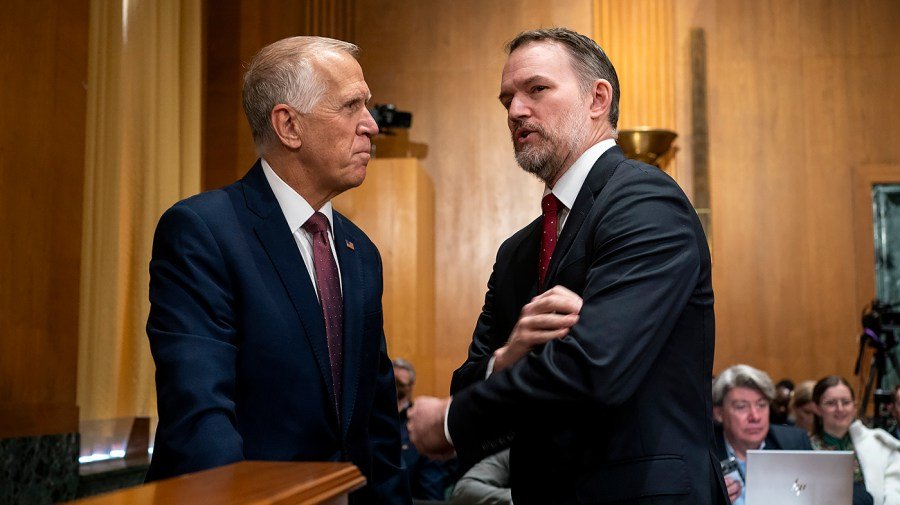
Sen. Thom Tillis (R-N.C.) expressed deep frustration with President Trump’s tariffs during a Tuesday hearing featuring the top White House trade negotiator.
“Whose throat do I get to choke if this proves to be wrong?,” Tillis asked U.S. Trade Representative Jamieson Greer during his appearance before the Senate Finance Committee.
Tillis, a critic of tariffs and protectionist policies, questioned whether the Trump administration had a coherent strategy to rebalance trade after announcing roughly $600 billion in new import taxes last week.
“It just seems like we’ve decided to begin a trade war on all fronts, and that’s okay, if the person who thought this through has an answer for why you go after partners that we have a very long storied relationship with,” Tillis said.
“I wish you well, but I am skeptical.”
Tillis is among a handful of Republican senators who have voiced concerns with Trump’s trade policy and the impact it could have on the U.S. economy. GOP critics of Trump’s tariffs cite the steep toll the president’s first-term trade wars had on American agriculture, which lost billions of dollars due to retaliation from other nations.
Trump last week announced he would impose a 10 percent tariff on nearly all foreign goods and import taxes as high as 54 percent on products from certain countries. China has retaliated with an additional 34-percent tariff on U.S. products, which could seriously harm American pork and soybean exports.
Tillis is one of seven Republican senators who signed on to a bill from Sens. Chuck Grassley (R-Iowa) and Sen. Maria Cantwell (D-Wash.) that would cut back the president’s authority to unilaterally impose tariffs.
Grassley, former chair of the Senate Finance Committee, said Tuesday that while he supports Trump’s trade goals, previous Congresses have given up too much of the legislature’s trade power.
“I made very clear throughout my public service that I’m a free and fair trader. The Constitution gives Congress the authority to regulate interstate and foreign commerce. I believe that Congress delegated too much authority to the president in the Trade Expansion Act of 1962 and Trade Act of 1974,” Grassley said.


